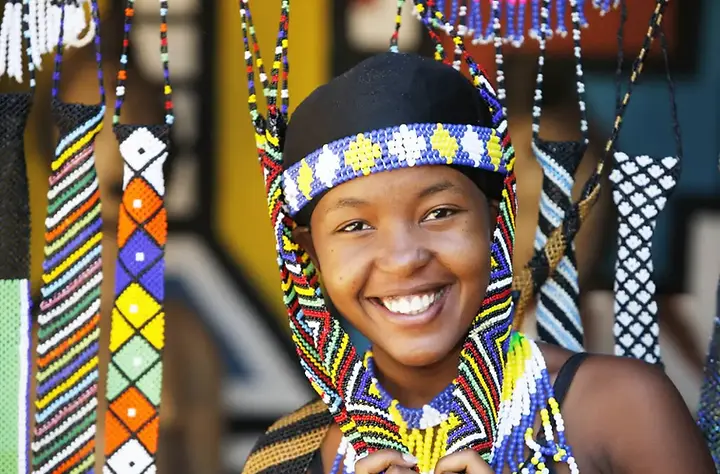
Basic Zulu Greetings and Words for Beginners
Learn basic Zulu greetings, words, and dialogues for beginners. Speak respectfully with simple phrases and cultural meanings explained
Published:
July 7, 2025 at 5:56:37 PM
Modified:
July 14, 2025 at 2:46:06 AM
Introduction
Sanibonani bafundi! My name is Neema Asha Mwakalinga, your African culture journalist. Though I am Tanzanian, I spent weeks studying Zulu through the AFL1503 Zulu beginner guide by the University of South Africa (UNISA). Today, I bring you a simple, powerful guide to Zulu greetings, words, and example dialogues to connect deeply with South African culture.
The Importance of Greetings in Zulu Culture
In Zulu culture, greeting is not just ‘hello.’ It shows respect, ubuntu (humanity), and acknowledgment of life. Elders say, “To greet is to give life to words.” That is why greetings are used everywhere: at home, at work, street, or at ceremonies.
Practical Zulu Greetings
Greeting One Person
Sawubona! – Hello! (literally: ‘I see you’)
Yebo, sawubona. – Yes, hello.
Asking how they are:
Unjani? – How are you?
Ngikhona. – I am fine (literally: ‘I am here’).
Example:A: Sawubona Gugu!B: Yebo, sawubona. Unjani?A: Ngikhona, wena unjani?B: Nami ngikhona.
Greeting Many People
Sanibonani! – Hello to you all.
Ninjani? – How are you all?
Sikhona. – We are fine.
Polite Words and Respect
Zulu | English |
Ngiyacela | Please |
Ngiyabonga | Thank you |
Uxolo | Sorry / Excuse me |
In Zulu, these words soften requests and show cultural humility.
Common Beginner Zulu Language Vocabulary
Zulu | English |
Baba | Father |
Mama | Mother |
Bhuti | Brother |
Sisi | Sister |
Umfana | Boy |
Ntombi | Girl |
Umngani | Friend |
Ikhaya | Home |
Ukudla | Food |
Amanzi | Water |
Example Dialogues
Greeting and Asking Name
A: Sawubona! Unjani?
B: Ngikhona, wena unjani?
A: Nami ngikhona. Ngubani igama lakho?
B: Igama lami nguThandi. Wena ungubani?
A: Mina nginguNomusa.
Meaning: Hello! How are you? – I am fine, and you? – I am also fine. What is your name? – My name is Thandi. And you? – I am Nomusa.
Cultural Insight: Why Greetings Matter
Zulu greetings reflect ubuntu philosophy. It is about seeing and recognizing each other’s humanity before any conversation, deal, or teaching begins. Even children learn this at a young age to respect parents, teachers, and elders
What Ages Learn These Greetings?
Children start practicing greetings from toddler age. In Zulu homes, greetings are part of discipline and cultural pride, making sure the language lives on from generation to generation.
What Can We Learn From Zulu Greetings?
Respect for elders – elders are greeted first.
Language preserves culture – using Zulu daily keeps it alive.
Community – greeting builds family and neighborly bonds.
Explore our full guide on Zulu Culture: Traditions, History, Food, Clothing & Beliefs Explained here
Final Reflection
As an African journalist, learning Zulu greetings has shown me that every language is a doorway to the soul of a people. Sawubona is not just ‘hello’; it is ‘I see you as a human being.’
Keep Reading



